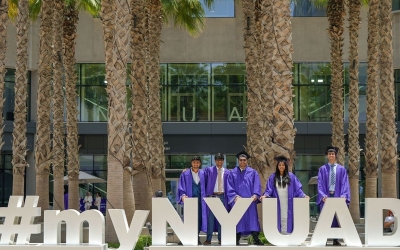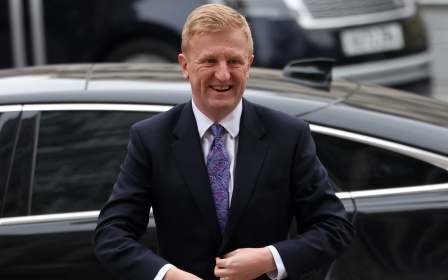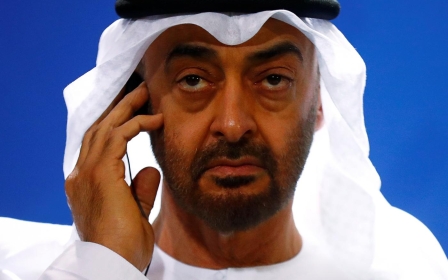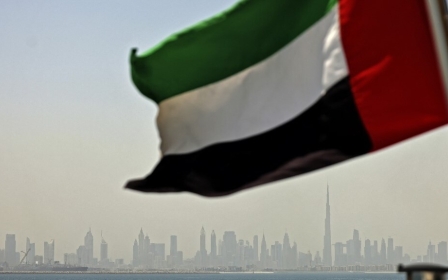As transnational repression gets attention in US, activists call for focus on UAE
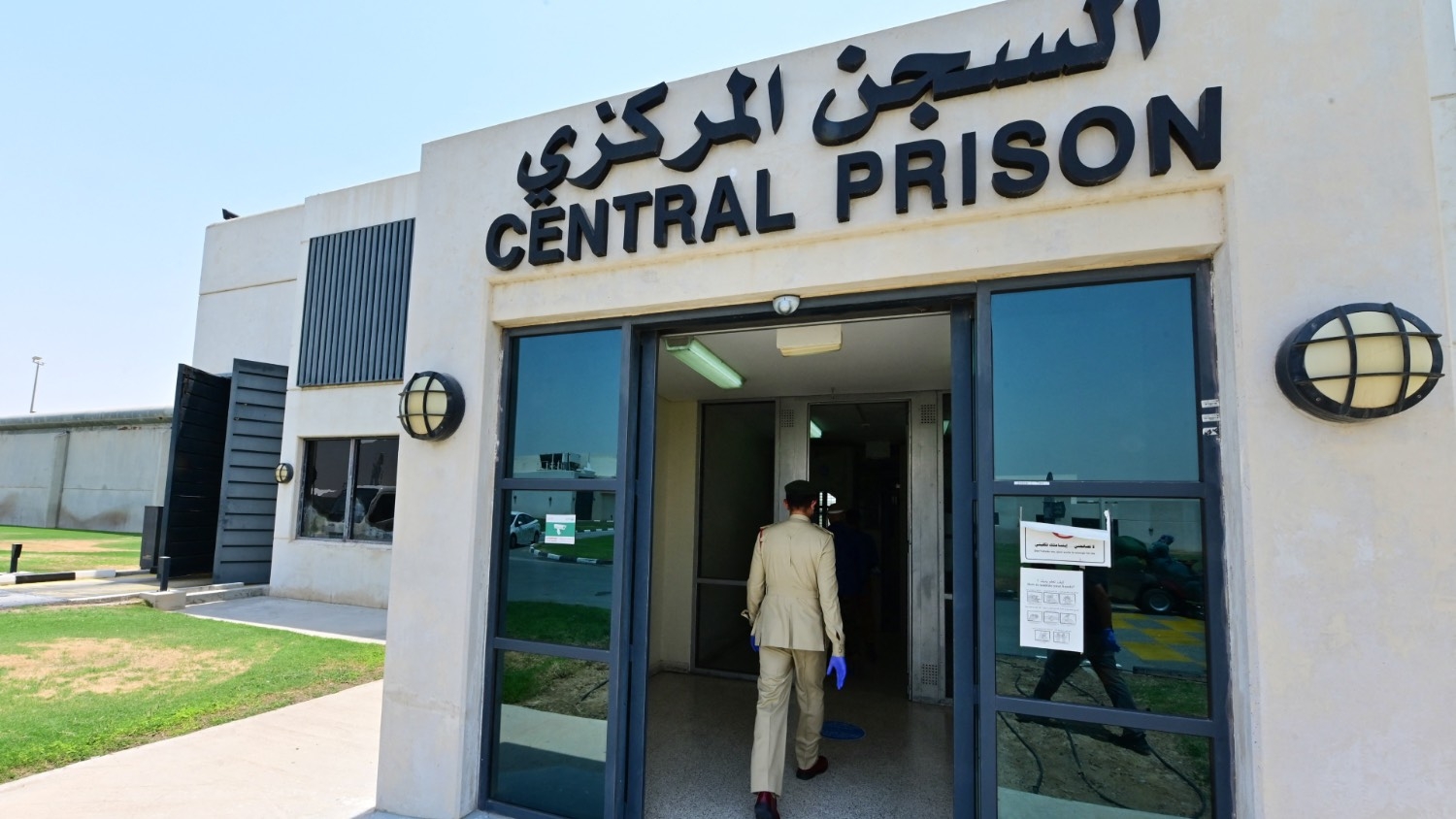
Emirati activists, former detainees and lawyers are calling on the US government and members of Congress to draw their attention toward the United Arab Emirates' role in transnational repression on US soil.
Transnational repression - a type of political repression that is conducted by a country on foreign soil including harassment, abduction and sometimes assassination - has been largely looked at within the United States with a focus on Washington's adversaries in Russia and China, but activists say a blind eye has been turned to allies like the UAE.
Speaking at a panel at the National Press Club in Washington on Tuesday, a small group of experts, including those formerly detained in the UAE and those whose families are currently detained there, spoke about Abu Dhabi's ongoing and growing role in transnational repression within the US.
"Despite well documented abuses, we are still witnessing a complete silence, regarding [the UAE's] human rights violations, from liberal democracies, such as the US that position itself as a global leader in promoting democracy and human rights and rule of law," Janan al-Marzouki, daughter of prominent Emirati political prisoner Abdulsalam Mohamed Darwish al-Marzooqi, said during the panel discussion.
"Overlooking and ignoring those human rights abuses in the UAE undermines these values and weakens the credibility of the UAE of the US on the international stage."
New MEE newsletter: Jerusalem Dispatch
Sign up to get the latest insights and analysis on Israel-Palestine, alongside Turkey Unpacked and other MEE newsletters
Marzouki added that the use of transnational repression, among other tactics of surveillance and suppressing dissent used by the Emirati government, "is often not fully recognised or addressed in diplomatic and strategic dialogues" that Washington holds with Abu Dhabi.
In recent years, the issue of transnational repression has become an increasing concern in the US, with lawmakers, the current administration and rights groups highlighting the phenomena.
In January, a congressional homeland security subcommittee held a hearing regarding the issue, and in April, several members of Congress introduced a bill to tackle transnational repression. That bill, if it passes and becomes law, would create an office within the Department of Homeland Security solely dedicated to this type of repression.
Over the past year, several leading human rights groups have also released reports on transnational repression.
The Freedom Initiative, which is now the Middle East Democracy Project, was one of the first groups to track the issue of transnational repression in the Middle East and released multiple reports with a focus on Saudi Arabia and Egypt's crackdown on dissidents in the US.
For Matthew Hedges, a British academic who was previously detained in the UAE for seven months, the role the Emirates plays in attacking and intimidating dissidents and critics abroad has become a central part of his work.
"When I was conducting fieldwork research, I was abducted by State Security. I was held for seven months. I was in solitary confinement, I was threatened with rendition to bases in Yemen or Eritrea," Hedges said during Tuesday's panel.
"I saw firsthand the punishment that was given to other detainees."
'Culture of fear' inside UAE
Marzouki said that another reason why there is a limited amount of attention given to the UAE's treatment of human rights activists and dissenting voices is because the crackdown it has launched over the years has been so severe, it has created a climate of fear preventing individuals from speaking about politics in general.
"Authorities have successfully limited human rights advocacy within its borders, because it built that culture of fear. So this atmosphere that they created has managed to silence everyone in the country," Marzouki said.
"There's only the few of us who are abroad who are able to talk and advocate for what's going on."
Marzouki mentioned that members of her own family living in the UAE have begun to distance themselves from her because of a fear they will be punished for her speaking out.
'I can't even name a single human rights advocate who is currently living [freely] in the UAE'
- Janan al-Marzouki, daughter of UAE political prisoner
"I can't even name a single human rights advocate who is currently living [freely] in the UAE."
Outside of activists, individuals have been jailed for privately chatting among friends about politics and global affairs. Marzouki mentioned there was a case where two Jordanian nationals were sentenced to 10 years in prison for chatting about the Yemen war in a private WhatsApp group.
The UAE also maintains a strong lobby in Washington DC, with a 2022 report by the Quincy Institute detailing that Emirati clients spent $64.5m on lobbying contracts. And several members of Congress have received sizeable donations from pro-Emirati lobbying groups.
Several prominent American think tanks have also received millions of dollars in "legal donations from the United Arab Emirates", the report noted.
"There is a perception… that the Emirates is a place of fun and sand, sea and a great place to go and do business and to make money," Rhys Davies, a barrister at Temple Garden Chambers in London and an expert in international law, said at the panel.
"The reality is rather different."
Rhys said that part of his work and the work of others, like Marzouki, is to "raise questions and let's see if there can be, for example, governmental reforms, and governmental concern that allows autocratic regimes to be challenged".
Middle East Eye delivers independent and unrivalled coverage and analysis of the Middle East, North Africa and beyond. To learn more about republishing this content and the associated fees, please fill out this form. More about MEE can be found here.


